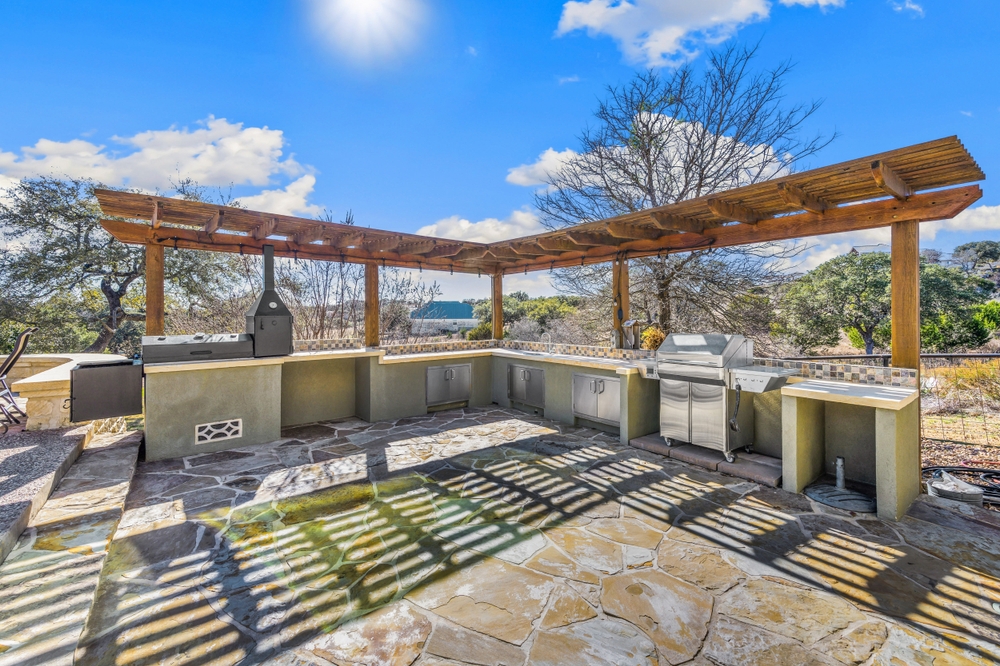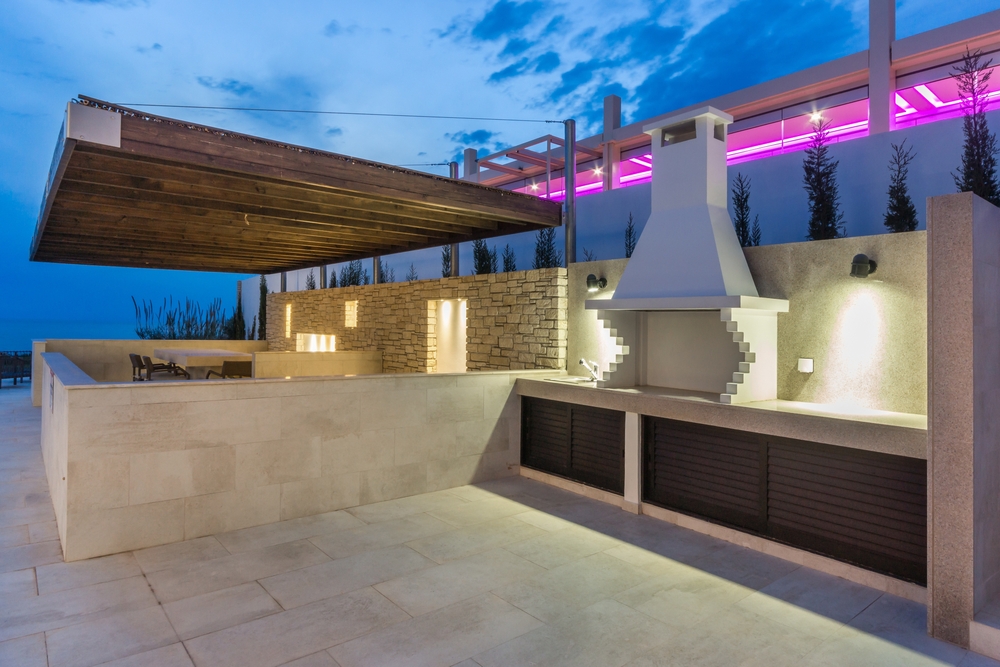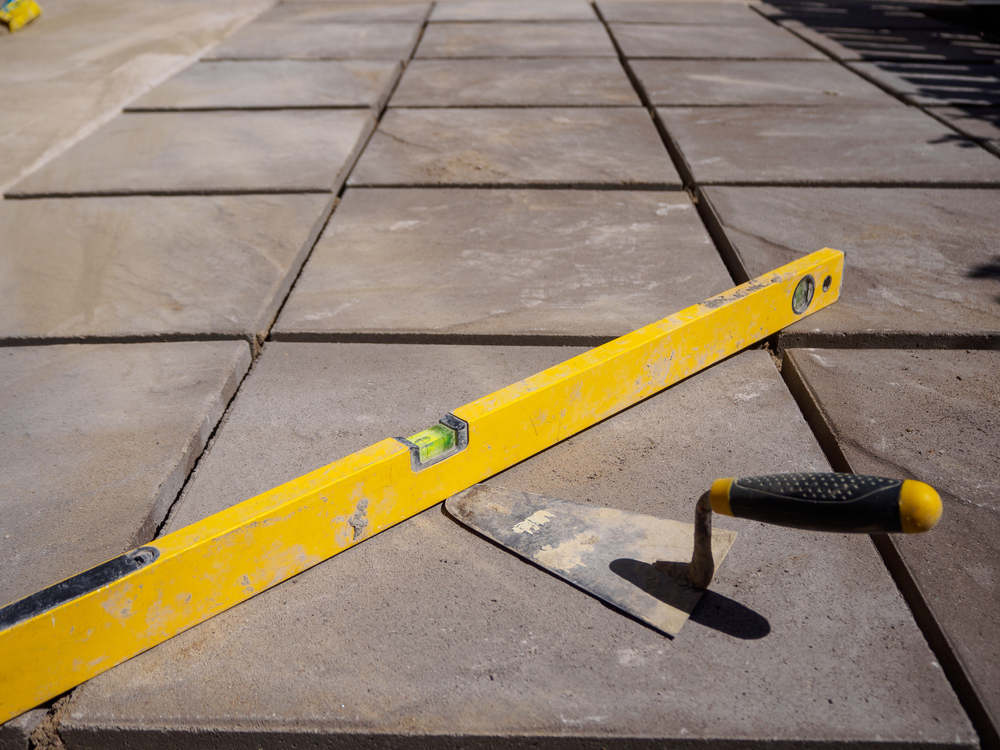
As homeowners continue to embrace outdoor living, the idea of bringing the heart of the home—the kitchen—into the fresh air has become more than just a trend. It’s a lifestyle upgrade. In cities like Sacramento, CA, where mild climates and abundant sunshine reign, outdoor kitchens are no longer just a luxury; they’re a cornerstone of modern living and an integral part of any serious home remodeling in Sacramento, CA. Maximizing your outdoor living space with a custom kitchen not only elevates your entertainment potential but also boosts property value, enhances your lifestyle, and brings your family closer together.
The Value of Outdoor Kitchens in Sacramento’s Climate
Sacramento enjoys a Mediterranean climate characterized by hot, dry summers and mild, wet winters. This makes the region ideal for year-round outdoor activities, especially cooking and dining al fresco. Investing in a custom outdoor kitchen allows homeowners to take full advantage of the local weather while minimizing the need to overuse indoor air conditioning during the summer months.
Unlike generic grills or portable setups, a custom kitchen can be fully equipped with high-end appliances, built-in storage, and even integrated seating or shade solutions. Imagine searing a steak on your premium gas grill while chatting with guests seated at your granite countertop bar, all under the warm golden sun or a pergola-covered patio. These experiences are at the heart of the outdoor lifestyle Sacramento residents crave.
Additionally, home remodeling in Sacramento, CA is increasingly leaning into designs that prioritize energy efficiency and multi-functional spaces. Outdoor kitchens satisfy both by reducing the strain on indoor cooling systems and providing versatile areas for dining, entertaining, and even remote working. The value-add is not just aesthetic; it’s functional and economic.
Designing with Purpose: The Art of Customization
The beauty of a custom outdoor kitchen lies in its ability to reflect the homeowner’s style, cooking habits, and entertainment needs. It’s not a one-size-fits-all solution. Some may want a rustic setup with wood-fired pizza ovens and stone countertops, while others might prefer a sleek, modern design with stainless steel fixtures and smart appliances.
When planning your custom kitchen, it’s essential to consider zoning and utility access. Proper plumbing and electrical work ensure seamless integration of sinks, refrigerators, and lighting systems. Storage solutions should also be tailored to your needs—think weatherproof cabinetry that houses utensils, spices, and cleaning supplies.
Another key aspect is the layout. Popular configurations include the linear layout for smaller spaces, the L-shaped design for medium areas, and U-shaped or island configurations for large patios. The layout should encourage a natural flow between cooking, dining, and lounging zones, making it easier to entertain and engage with guests.
Homeowners undergoing home remodeling in Sacramento, CA are increasingly collaborating with designers who specialize in outdoor living spaces. This collaboration ensures that materials, finishes, and layouts complement both the natural surroundings and the home’s existing architectural style. It’s not just about creating a standalone feature—it’s about expanding the living space in a cohesive, aesthetically pleasing way.
Integrating Modern Technology and Eco-Friendly Features
Today’s outdoor kitchens are smarter and more sustainable than ever. With the rise of home automation, you can now control outdoor lighting, temperature, and even appliances from your smartphone. Want to preheat the grill before you arrive home from the grocery store? No problem. Looking to set the mood with ambient lighting and your favorite playlist? It’s just a tap away.
Incorporating eco-friendly features is also gaining traction among homeowners pursuing home remodeling in Sacramento, CA. Solar-powered lighting, energy-efficient appliances, and sustainable materials like recycled composite decking and reclaimed wood are popular choices. Water-saving faucets and proper drainage systems also play a crucial role in responsible design, especially in drought-prone areas like California.
Moreover, many outdoor kitchens now feature high-performance insulation and ventilation systems, allowing you to cook efficiently without compromising comfort. Some setups even include green elements such as vertical gardens, herb walls, or planter boxes, which add beauty while providing fresh ingredients at arm’s reach.
Hosting and Lifestyle Benefits of an Outdoor Kitchen
An outdoor kitchen transforms your backyard into a year-round entertainment hub. Whether you’re hosting a summer barbecue, a winter wine tasting, or a casual weeknight family dinner, having a dedicated space for outdoor cooking simplifies logistics and enhances the experience. There’s no running back and forth between the house and patio; everything you need is within reach.
The social benefits are equally significant. Cooking becomes a communal activity rather than a solitary task. With counter seating, fire pits, and outdoor lounges nearby, family and friends naturally gather, creating an inviting atmosphere where memories are made. For families with children, outdoor kitchens can also double as safe, supervised areas for play and learning—whether it’s helping to prep food or doing homework outdoors.
For homeowners interested in wellness and healthy living, outdoor kitchens encourage more home-cooked meals and fresh-air dining. You’re more likely to grill fresh vegetables or prepare lean proteins when the process feels less like a chore and more like an experience. Add in a shaded pergola, a few ceiling fans, and perhaps a misting system, and even the hottest Sacramento days can become an opportunity for joyful culinary exploration.
Long-Term Investment and Property Value
While the upfront cost of a custom outdoor kitchen can be significant, it should be viewed as a long-term investment in both your lifestyle and your property. According to industry reports, homes with well-designed outdoor living spaces, particularly those featuring kitchens, see a substantial boost in resale value. Prospective buyers in Sacramento often look for homes that already include these enhancements, knowing they offer both functional benefits and a touch of luxury.
Home remodeling in Sacramento, CA is increasingly driven by a desire for indoor-outdoor harmony, especially in light of recent lifestyle shifts that prioritize comfort, flexibility, and self-sufficiency. An outdoor kitchen fits perfectly within this paradigm. It increases usable square footage without the complexities of indoor expansion, and the ROI—both in personal enjoyment and monetary value—makes it a compelling addition to any renovation plan.
Even modest outdoor kitchen upgrades, such as adding a built-in grill, counter space, or a shade structure, can yield noticeable returns. And for those considering solar panels or other eco upgrades, integrating them into a comprehensive outdoor living strategy can amplify savings and appeal.
Turning Vision into Reality
Maximizing your outdoor living space with a custom kitchen is about more than just aesthetics—it’s about lifestyle transformation. In Sacramento, where the climate is conducive to outdoor activity for most of the year, the investment pays off in countless ways. Whether you envision laid-back family dinners, elegant cocktail parties, or weekend pizza-making with the kids, the possibilities are endless.
By approaching your project with careful planning, thoughtful design, and an eye toward both current trends and timeless functionality, you can create a space that enhances your home, boosts your property value, and becomes a cherished backdrop for years of memories. Whether you’re starting small or going all-in on a fully loaded outdoor culinary oasis, the key is to align your choices with how you live—and aspire to live.
For homeowners pursuing home remodeling in Sacramento, CA, now is the perfect time to reimagine your backyard as more than just a patch of grass. With a custom kitchen at its heart, your outdoor space can become the most dynamic, engaging, and beloved part of your home.
Need All-Inclusive Construction Services Near You?
Here at Palapa Pros-Landscape Construction, we’re here to turn your dream backyard or home improvement project into reality. Whether it’s a custom Palapa, a sleek BBQ island, stunning granite or quartz surfaces, or a full landscaping transformation, we’ve got you covered. Our skilled team brings quality, elegance, and a touch of fun to every project—big or small. Ready to create the perfect outdoor living space or upgrade your kitchen or bathroom? Reach out to us today, and let’s start designing something amazing together. We stand behind every job with pride and integrity!

As the summer season approaches, many homeowners are eager to embrace the warmth and spend more time outdoors. One of the best ways to enjoy the season is by designing an outdoor kitchen. Outdoor kitchens allow for a seamless transition between the indoors and the outdoors, providing a space for entertaining guests, preparing meals, and enjoying the beauty of nature. Whether you’re looking to host a barbecue with friends or create a relaxing space for family dinners, an outdoor kitchen can enhance your outdoor living experience. In this blog, we’ll explore 10 creative ways to design an outdoor kitchen that’s perfect for summer entertaining.
Embrace the Open-Air Concept
When planning your outdoor kitchen, consider embracing the open-air concept. By designing a kitchen with open space and natural ventilation, you create a comfortable and inviting environment that feels connected to the outdoors. Instead of enclosing your kitchen with walls, allow the breeze to flow freely through the space. Use retractable awnings or pergolas to provide some shade, ensuring that your kitchen is still usable during hot days. This design approach allows you to cook and entertain while enjoying the beauty of your surroundings. With the help of Construction Services in Sacramento, CA, you can bring this vision to life and customize the space according to your needs.
Integrate a Built-In Bar Area
One of the key elements of an outdoor kitchen is a designated space for guests to socialize while you cook. A built-in bar area provides the perfect spot for friends and family to gather, sip cocktails, and chat as you prepare meals. You can design a stylish bar with comfortable seating, elegant lighting, and even a mini-fridge to keep drinks cold. This addition not only makes the kitchen more functional but also turns it into an entertainment hub. Whether you opt for a sleek modern bar or a rustic farmhouse-style counter, this feature will certainly enhance your outdoor cooking experience.
Create a Multi-Functional Cooking Area
An outdoor kitchen should be more than just a place to grill hamburgers and hot dogs. To make your space more versatile, design a multi-functional cooking area that includes a variety of appliances and tools. Consider adding a built-in pizza oven, smoker, or even a small stove for preparing complex dishes. This way, your outdoor kitchen will become a year-round cooking space, allowing you to prepare everything from grilled vegetables to gourmet pizzas. When designing this cooking area, be sure to plan for adequate counter space and storage to keep everything organized and easily accessible.
Incorporate Sustainable Design Features
As sustainability becomes an increasingly important factor in home design, integrating eco-friendly features into your outdoor kitchen is a great way to reduce your environmental footprint. You can use sustainable materials such as reclaimed wood, bamboo, or recycled stone for countertops and cabinetry. In addition, installing energy-efficient appliances, like induction cooktops or solar-powered lighting, can help lower your kitchen’s energy consumption. If possible, incorporate rainwater collection systems to irrigate your outdoor garden or install a composting station for waste disposal. By incorporating these sustainable design elements, you create an outdoor kitchen that not only serves your entertaining needs but also contributes to a healthier environment.
Add a Touch of Luxury with a Fire Pit or Fireplace
An outdoor kitchen can become a luxurious retreat with the addition of a fire pit or fireplace. These elements create a warm and inviting ambiance, perfect for cozy evenings with family and friends. A fire pit can serve as the focal point of your outdoor dining area, while also providing a convenient place to roast marshmallows or unwind after a meal. For a more sophisticated feel, a built-in fireplace can add elegance and charm to the space. Whether you choose a rustic stone fire pit or a sleek modern fireplace, adding fire features will elevate your outdoor kitchen and make it feel like an oasis.
Maximize Natural Lighting with Skylights and LED Features
Lighting plays a crucial role in setting the mood for outdoor entertaining, especially during evening gatherings. One creative way to enhance your outdoor kitchen is by incorporating skylights and LED lighting features. Skylights allow natural light to flood the space during the day, making it bright and airy. At night, LED lights can be strategically placed along countertops, cabinets, and seating areas to create a warm and welcoming atmosphere. You can also install dimmable lights for flexibility, adjusting the brightness depending on the time of day or the ambiance you wish to create. With the right lighting design, your outdoor kitchen will be perfect for both day and night events.
Design for Comfort with Outdoor Furniture
While the kitchen itself is the centerpiece of your outdoor entertaining space, don’t overlook the importance of comfortable furniture. The key to a successful outdoor kitchen is creating a space where guests can relax, eat, and socialize in comfort. Consider adding a dining table with cushioned chairs for meals, as well as lounge seating for casual hangouts. If you have the space, a sectional sofa or outdoor chaise lounges can offer a cozy place for guests to relax and enjoy the surroundings. When choosing furniture, opt for weather-resistant materials like teak, aluminum, or wicker that can withstand the elements and maintain their beauty over time.
Incorporate a Green Space for a Natural Touch
A great way to enhance the overall aesthetics of your outdoor kitchen is by incorporating greenery into the design. Adding plants and herbs around your kitchen area creates a natural and refreshing environment, adding beauty and fragrance to the space. You can plant a variety of flowers, shrubs, and vines to soften the edges of your kitchen and provide a relaxing ambiance. Herb gardens are especially popular in outdoor kitchens, as they not only look beautiful but also provide fresh ingredients for cooking. For added visual appeal, consider incorporating vertical gardens, hanging planters, or decorative pots for a stylish, green touch.
Create a Seamless Flow Between Indoors and Outdoors
When designing an outdoor kitchen, it’s essential to create a seamless flow between the indoor and outdoor spaces. This allows for easy movement between the two areas, making it convenient for cooking and serving meals. To achieve this, consider installing large sliding or folding doors that can be opened to connect the kitchen to the outdoor area. Use complementary materials such as matching flooring or cabinetry to create visual continuity between the two spaces. A seamless transition not only enhances the overall aesthetic of your home but also makes entertaining much easier, as guests can easily move between the kitchen and dining area.
Focus on Smart Technology for Convenience and Efficiency
Incorporating smart technology into your outdoor kitchen can greatly enhance its functionality and convenience. Consider adding smart appliances such as a Wi-Fi-enabled grill or a smart refrigerator that can be controlled remotely. You can also install a sound system to play music while you cook and entertain, or add a smart lighting system that can be controlled from your smartphone. Smart technology can take your outdoor kitchen to the next level, making it more efficient and user-friendly, while also allowing you to enjoy a modern cooking experience in the great outdoors.
Conclusion
Designing an outdoor kitchen is an exciting opportunity to create a beautiful, functional space for summer entertaining. With careful planning and creative design elements, you can transform your backyard into a culinary haven that reflects your personal style and meets your hosting needs. Whether you’re working with Construction Services in Sacramento, CA, or taking on the project yourself, these 10 creative ideas will help you build the perfect outdoor kitchen to enjoy all summer long.
Need All-Inclusive Construction Services Near You?
Here at Palapa Pros-Landscape Construction, we’re here to turn your dream backyard or home improvement project into reality. Whether it’s a custom Palapa, a sleek BBQ island, stunning granite or quartz surfaces, or a full landscaping transformation, we’ve got you covered. Our skilled team brings quality, elegance, and a touch of fun to every project—big or small. Ready to create the perfect outdoor living space or upgrade your kitchen or bathroom? Reach out to us today, and let’s start designing something amazing together. We stand behind every job with pride and integrity!

When it comes to enhancing your outdoor space, choosing the right material for your patio, driveway, or walkway is crucial. Homeowners often find themselves debating between two popular options: concrete and pavers. Each material has its own set of advantages and drawbacks, making the decision dependent on your specific needs, budget, and aesthetic preferences. Let’s dive into the pros and cons of concrete vs pavers for patio, and explore which is the best material for driveway: concrete or pavers.
Understanding Concrete and Pavers
Before comparing the two materials, it’s important to understand what each entails.
What is Concrete?
Concrete is a composite material made of cement, water, and aggregates such as sand or gravel. It’s poured and set in a continuous slab or into molds for customized designs. Concrete is known for its durability and versatility.
What are Pavers?
Pavers are individual stones, bricks, or tiles made from materials like concrete, natural stone, or clay. They are typically laid out in an interlocking pattern, offering a modular approach to design.
Concrete vs. Pavers for Patio: Pros and Cons
The patio is a focal point of outdoor living. Deciding between concrete and pavers for your patio depends on factors like appearance, durability, and maintenance.
Pros of Concrete for Patios
- Affordability: Concrete is generally more affordable upfront compared to pavers.
- Seamless Appearance: Concrete offers a smooth, continuous surface that can be stained, stamped, or textured for a custom look.
- Durability: Properly installed and maintained concrete patios can last for decades.
- Quick Installation: Concrete can be poured in a single session, making the installation process faster.
Cons of Concrete for Patios
- Cracking: Over time, concrete is prone to cracking due to weather fluctuations and settling.
- Limited Repairs: Repairing cracks in concrete can be difficult and may require patching, which can disrupt the visual appeal.
- Slippery Surface: When wet, concrete can become slippery unless treated with an anti-slip finish.
Pros of Pavers for Patios
- Design Versatility: Pavers come in various shapes, colors, and materials, allowing for creative designs and patterns.
- Easy Repairs: Damaged pavers can be replaced individually without affecting the surrounding area.
- Durability: Pavers are strong and resistant to cracking.
- Non-Slip Surface: Many pavers have a naturally textured surface, reducing the risk of slipping.
Cons of Pavers for Patios
- Higher Cost: Pavers can be more expensive to purchase and install compared to concrete.
- Weed Growth: Weeds can grow between pavers if the joints are not properly sealed or maintained.
- Labor-Intensive Installation: Installing pavers is time-consuming and requires professional expertise for best results.
Best Material for Driveway: Concrete or Pavers?
The driveway is a high-traffic area, so durability and functionality are key factors to consider.
Concrete Driveways: Pros and Cons
- Pros:
- Cost-Effective: Concrete driveways are typically less expensive than pavers.
- Long Lifespan: With proper care, concrete driveways can last 25-30 years.
- Low Maintenance: Routine cleaning and occasional sealing are enough to maintain a concrete driveway.
- Clean Look: The seamless surface of concrete provides a clean and minimalist aesthetic.
- Cons:
- Prone to Cracks: Heavy vehicles, shifting soil, and weather changes can cause concrete driveways to crack.
- Difficult Repairs: Fixing cracks in a concrete driveway can be challenging and costly.
- Staining: Concrete is prone to oil and tire marks, which can be difficult to remove.
Paver Driveways: Pros and Cons
- Pros:
- Exceptional Durability: Pavers can withstand heavy loads without cracking.
- Customizable Aesthetic: With a variety of materials, colors, and patterns, pavers offer unparalleled design flexibility.
- Repairability: Individual pavers can be replaced, making repairs straightforward.
- Drainage: Paver driveways allow water to seep through the joints, reducing runoff.
- Cons:
- Higher Cost: The material and labor for paver driveways can be significantly more expensive than concrete.
- Maintenance: Regular cleaning and sealing are required to prevent weed growth and shifting.
- Longer Installation Time: The intricate installation process can take several days to complete.
Factors to Consider When Choosing Between Concrete and Pavers
To make the best decision for your outdoor space, consider the following factors:
Budget
If you’re on a tight budget, concrete may be the more affordable option upfront. However, the long-term costs of repairs and maintenance for concrete should also be factored into your decision.
Durability
For areas with heavy use, such as driveways, pavers may be the better choice due to their resistance to cracking and ability to handle significant weight.
Aesthetic Preferences
Pavers offer more design flexibility, making them ideal if you want a unique or intricate look. Concrete is better for those who prefer a clean, minimalist appearance.
Maintenance
If low maintenance is a priority, concrete might be more appealing. However, if you’re willing to put in extra effort for a more durable and customizable option, pavers are worth considering.
Climate
In regions with frequent freeze-thaw cycles, pavers perform better as they can expand and contract without cracking. Concrete is more prone to damage in such conditions.
The Verdict: Concrete vs. Pavers for Your Outdoor Space
Ultimately, the decision between concrete and pavers depends on your specific needs and preferences. For patios, pavers may be ideal if you want a unique, customizable design and are willing to invest in the upfront cost. Concrete, on the other hand, is great for those seeking a cost-effective and low-maintenance option.
For driveways, pavers stand out for their durability and design flexibility, while concrete offers an affordable and sleek solution. Carefully weigh the pros and cons of concrete vs pavers for patio: pros and cons and the best material for driveway: concrete or pavers before making your choice.
Tips for Making the Right Choice
- Consult a Professional: A contractor can assess your space and recommend the best option based on your needs.
- Prioritize Quality: Whether you choose concrete or pavers, ensure that you invest in high-quality materials and professional installation for optimal results.
- Consider Future Costs: Think about long-term maintenance and repair expenses to determine the true cost of your investment.
Final Thoughts
Enhancing your outdoor space is an exciting project that can add value to your home. By understanding the differences between concrete and pavers, you’ll be better equipped to make a choice that aligns with your aesthetic goals, budget, and lifestyle needs. Whether you’re creating a new patio or upgrading your driveway, both options have unique strengths that can transform your space into something beautiful and functional.
Need All-Inclusive Construction Services Near You?
Here at Palapa Pros-Landscape Construction, we’re here to turn your dream backyard or home improvement project into reality. Whether it’s a custom Palapa, a sleek BBQ island, stunning granite or quartz surfaces, or a full landscaping transformation, we’ve got you covered. Our skilled team brings quality, elegance, and a touch of fun to every project—big or small. Ready to create the perfect outdoor living space or upgrade your kitchen or bathroom? Reach out to us today, and let’s start designing something amazing together. We stand behind every job with pride and integrity!



